Premium Window Seal Strip Adhesive Companies | Weatherproof Solutions
Sep . 19, 2025 10:25 Back to list
Premium Window Seal Strip Adhesive Companies | Weatherproof Solutions
The Critical Role of Window Seal Strip Adhesive Manufacturers
In contemporary building and industrial applications, the integrity and performance of window systems are paramount. This extends beyond aesthetic appeal to encompass critical functions such as energy efficiency, sound insulation, and protection against environmental elements. At the heart of achieving these demanding performance benchmarks are the specialized products developed by leading window seal strip adhesive companies. These entities are instrumental in engineering advanced sealing solutions that ensure longevity, resilience, and optimal functionality for a diverse array of window constructions, from residential and commercial glazing to high-performance industrial fenestration.
The demand for high-quality window seal strip adhesives has surged, driven by stricter energy codes, evolving architectural designs, and the need for enhanced occupant comfort. As such, the technical expertise and manufacturing capabilities of window seal strip adhesive companies are continuously advancing, offering innovative materials and production techniques to meet the rigorous specifications of modern engineering. This article delves into the intricate world of these essential components, exploring their manufacturing processes, technical specifications, application advantages, and the crucial factors for vendor selection.
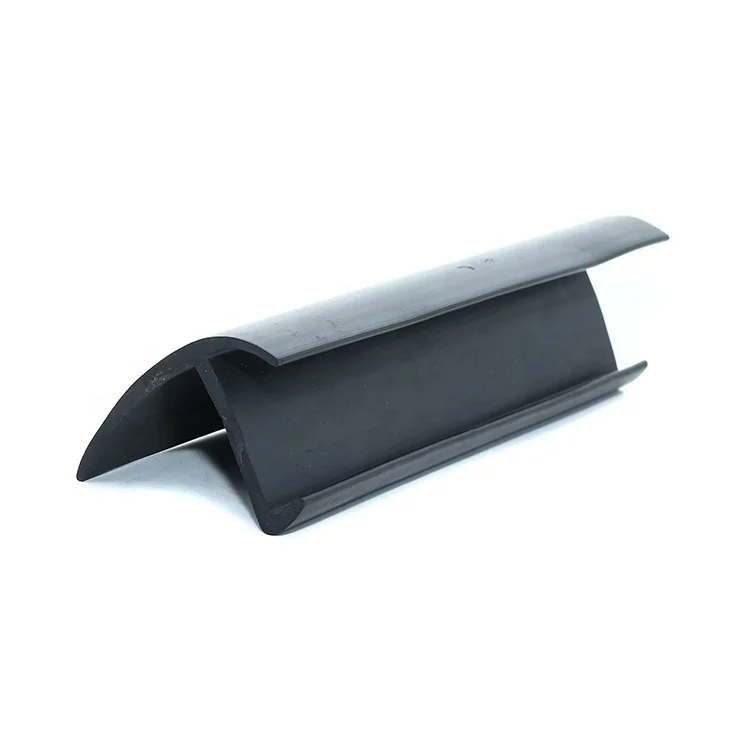
Detailed Manufacturing Process Flow of Window Seal Strips
The production of high-performance window seal strips, such as the widely used aluminium window rubber glazing gaskets, involves a sophisticated multi-stage process that guarantees precision, durability, and adherence to stringent industry standards. The expertise of window seal strip adhesive manufacturers is vital at each step, from material selection to final quality assurance.
Key Process Stages:
-
1. Material Selection and Compounding:
This initial phase is critical. Typical materials include EPDM (Ethylene Propylene Diene Monomer) rubber, Silicone rubber, and TPE (Thermoplastic Elastomer), chosen for their specific properties such as UV resistance, ozone resistance, temperature stability, and elasticity. Raw polymers are mixed with various additives—fillers (e.g., carbon black, silica), plasticizers, vulcanizing agents (e.g., sulfur, peroxides), accelerators, and anti-aging agents—in a high-shear mixer. This compounding process ensures the final material possesses the desired physical and chemical characteristics, including specific durometer hardness, tensile strength, and elongation at break.
-
2. Extrusion:
The compounded material is fed into an extruder. Under controlled temperature and pressure, a screw forces the material through a precisely designed die. This die dictates the cross-sectional profile of the seal strip. For complex profiles like aluminium window rubber glazing gaskets, multi-component extrusion might be employed, allowing different materials or hardnesses within a single profile. This step ensures dimensional accuracy and consistent shape.
-
3. Vulcanization (Curing):
Immediately after extrusion, the uncured rubber profile enters a vulcanization oven (e.g., hot air, salt bath, microwave). This heating process initiates a chemical reaction where cross-links are formed within the polymer matrix, transforming the plastic-like material into a highly elastic rubber. Proper vulcanization is crucial for achieving the desired mechanical properties, compression set resistance, and long-term durability of the seal strip. Temperature and dwell time are precisely controlled.
-
4. Cooling and Sizing:
After vulcanization, the seal strips are cooled to stabilize their dimensions and prevent deformation. Precision cutting machines then cut the continuous profiles into specific lengths as required for application or packaging. In some cases, a high-speed CNC machining process might be used for highly complex cuts or to create specific end-formations.
-
5. Surface Treatment (Optional):
Depending on the application, seal strips may undergo surface treatments such as flocking (for reduced friction), silicone coating (for enhanced slip and UV resistance), or the application of pressure-sensitive adhesive (PSA) backing. The adhesive application is a critical step performed by specialized machinery to ensure uniform coverage and strong bonding capability.
-
6. Quality Control and Testing:
Throughout the entire process, rigorous quality control checks are performed. This includes:
- Dimensional verification (profile accuracy, length tolerance).
- Material property testing (durometer, tensile strength, elongation, compression set, specific gravity).
- Environmental resistance tests (UV exposure, ozone resistance, temperature cycling, salt spray).
- Adhesion strength testing (for PSA-backed strips).
-
7. Packaging and Distribution:
Finished products are carefully packaged to prevent damage during transit and stored for distribution. Efficient logistics ensure timely delivery to various target industries, including petrochemical, metallurgy, water supply & drainage, automotive, and general construction.
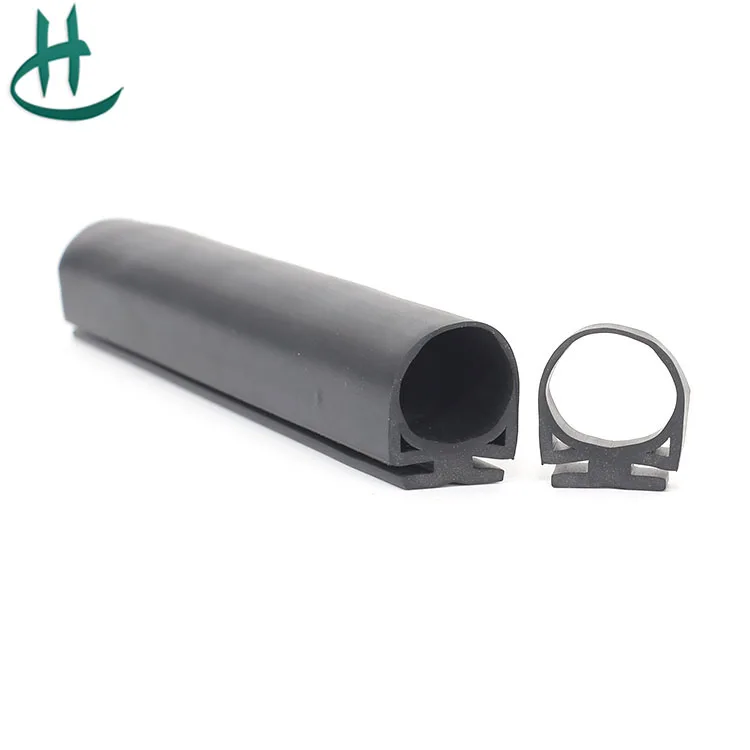
Industry Trends in Window Seal Strip Adhesives
The market for window seal strip adhesives is dynamic, influenced by technological advancements, regulatory pressures, and evolving end-user demands. Key trends impacting window seal strip adhesive companies include:
- Sustainability and Green Materials: Increasing focus on eco-friendly materials, including recycled content and bio-based polymers, as well as production processes with reduced environmental impact. REACH and RoHS compliance are becoming standard.
- Enhanced Energy Efficiency: Development of seals with superior thermal insulation properties (e.g., lower U-values), crucial for meeting stringent building energy codes (e.g., Passive House standards, LEED certification). This often involves multi-cavity designs and advanced elastomer compounds.
- Improved Durability and Longevity: Demand for seal strips that withstand extreme weather conditions, UV radiation, and ozone exposure for extended periods without degradation. This reduces maintenance costs and lifecycle impacts.
- Smart Sealing Solutions: Integration of sensor technology in some advanced applications for real-time monitoring of seal integrity, though less common in standard window applications, it represents a future direction.
- Customization and Complex Profiles: Growing need for highly customized profiles to fit unique window designs and specific performance requirements, driving innovation in extrusion and tooling capabilities.
- Pre-applied Adhesives and Faster Installation: Development of seal strips with high-performance, pre-applied pressure-sensitive adhesives (PSAs) that simplify and speed up installation on-site, reducing labor costs and potential errors.
Technical Specifications and Performance Parameters
Understanding the technical specifications of window seal strips is crucial for B2B decision-makers. These parameters dictate the suitability and performance of a product in specific application environments. Below is a representative specification table for high-quality aluminium window rubber glazing gaskets, a product commonly supplied by expert window seal strip adhesive suppliers:
Typical Specifications for Aluminium Window Rubber Glazing Gaskets
| Parameter | Typical Value Range | Test Standard |
|---|---|---|
| Material Type | EPDM, Silicone, TPE (Blend) | ASTM D2000, ISO 1629 |
| Hardness (Durometer Shore A) | 60-80 Shore A | ASTM D2240, ISO 7619-1 |
| Tensile Strength | > 8 MPa (EPDM), > 5 MPa (Silicone) | ASTM D412, ISO 37 |
| Elongation at Break | > 250% (EPDM), > 150% (Silicone) | ASTM D412, ISO 37 |
| Compression Set (70h @ 100°C) | ASTM D395 Method B, ISO 815 | |
| Operating Temperature Range | -40°C to +120°C (EPDM), -60°C to +200°C (Silicone) | ASTM D1053, ISO 3387 |
| UV/Ozone Resistance | Excellent | ASTM D1149, ISO 1431-1 |
| Water Absorption | ASTM D570, ISO 62 | |
| Adhesive Type (if applicable) | Acrylic, Rubber-based PSA | ASTM D3330 (Peel Adhesion) |
These specifications underscore the need for precision engineering and material science expertise to develop robust and long-lasting seal strips. The choice of material significantly impacts properties like chemical resistance, flexibility at low temperatures, and overall cost.
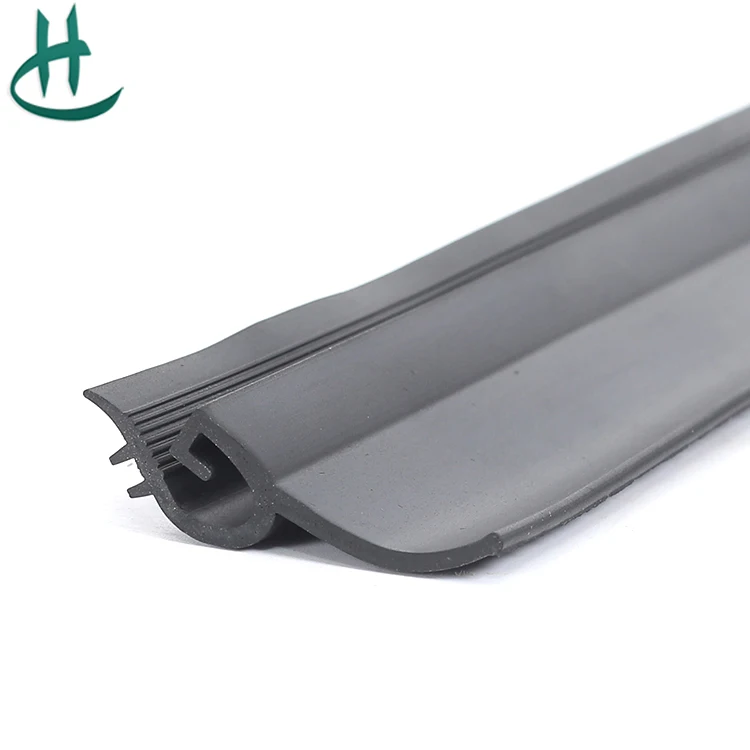
Diverse Application Scenarios
The applications for high-quality window seal strip adhesives span a broad spectrum of industries and building types, reflecting their essential function in creating sealed, protected environments.
- Commercial and Residential Buildings: Essential for insulating windows, preventing air and water infiltration, and enhancing thermal performance. This directly contributes to energy savings by reducing heating and cooling loads.
- Automotive Industry: Used in vehicle windows and doors for noise reduction, water sealing, and vibration damping, contributing to occupant comfort and safety.
- Industrial and Manufacturing Facilities: Employed in control room windows, equipment enclosures, and specialized industrial glazing where protection against dust, chemicals, and extreme temperatures is critical.
- Marine and Aerospace: For windows and hatches where extreme resistance to salt water, UV radiation, and pressure differentials are required.
- Specialized Glazing: Such as soundproof windows for studios or hospitals, and fire-rated windows where specific performance criteria are paramount.
Technical Advantages and Performance Benefits
Investing in superior window seal strip adhesives from reputable window seal strip adhesive exporters offers a multitude of technical advantages and performance benefits for both end-users and project stakeholders:
- Exceptional Weather Resistance: High-grade materials like EPDM and Silicone provide excellent resistance to extreme temperatures, UV radiation, ozone, and precipitation, ensuring long-term sealing integrity without cracking, hardening, or shrinking.
- Superior Energy Efficiency: By creating an airtight and watertight seal, these strips prevent thermal bridging and air leakage, significantly reducing heat loss in winter and heat gain in summer. This directly translates to lower energy consumption for heating and cooling, offering substantial cost savings and contributing to a lower carbon footprint.
- Enhanced Sound Insulation: The dense and elastic properties of quality seal strips effectively dampen sound transmission, contributing to quieter indoor environments, crucial for residential comfort and productivity in commercial spaces.
- Corrosion Resistance: Unlike some metallic components, rubber and advanced polymer seals are inherently resistant to corrosion, particularly important in harsh industrial environments or coastal regions.
- Durability and Longevity: Engineered to withstand repeated compression cycles and environmental stressors, these seals maintain their elasticity and sealing force over many years, minimizing maintenance and replacement costs.
- Vibration Damping: The elastomeric nature of the materials helps absorb vibrations, protecting the window structure and reducing potential material fatigue.
- Chemical Resistance: Specific rubber compounds offer resistance to a range of chemicals, making them suitable for industrial applications where exposure to solvents or aggressive cleaning agents might occur.
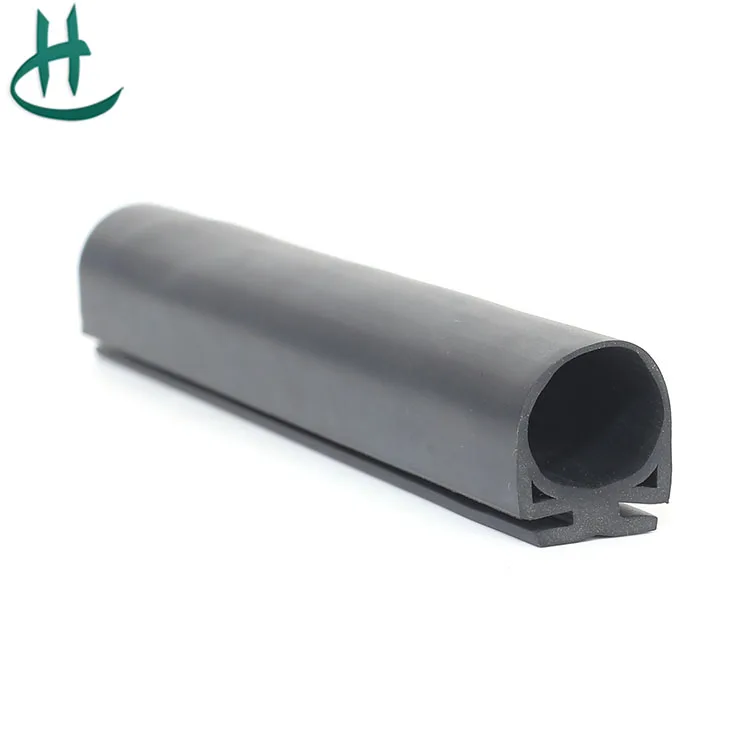
Vendor Comparison: Choosing the Right Window Seal Strip Adhesive Company
Selecting the right supplier from the many window seal strip adhesive companies is a critical decision that impacts project timelines, budget, and long-term performance. A comprehensive evaluation of potential partners is essential.
Key Factors for Vendor Comparison:
| Factor | Description/Evaluation Criteria | Impact on Project |
|---|---|---|
| Material Expertise | Breadth of materials (EPDM, Silicone, TPE, PVC), knowledge of their properties, ability to recommend optimal material for application. Certifications (ISO, ASTM, REACH, RoHS). | Ensures product suitability and long-term performance. |
| Manufacturing Capabilities | Advanced extrusion techniques, precision tooling, large production capacity, in-house compounding. Experience as a window seal strip adhesive factory. | Ensures quality, consistency, and ability to meet volume demands. |
| Customization Options | Ability to produce custom profiles, lengths, colors, and adhesive types based on specific project needs. CAD/CAM design capabilities. | Critical for unique architectural or engineering requirements. |
| Quality Assurance & Testing | Rigorous QA processes, adherence to international standards (e.g., ISO 9001), availability of test reports and performance data. | Guarantees product reliability and compliance. |
| Lead Time & Logistics | Reliable production schedules, efficient order fulfillment, global shipping capabilities (for window seal strip adhesive exporters). | Directly impacts project timelines and reduces delays. |
| Customer Support & Technical Assistance | Responsive pre-sales consultation, technical support during installation, clear warranty terms, after-sales service. | Ensures smooth project execution and problem resolution. |
| Pricing & Value Proposition | Competitive pricing balanced with product quality and service. Total cost of ownership consideration, not just unit price. | Optimizes budget while ensuring quality and longevity. |
A thorough assessment based on these criteria ensures a partnership that delivers high-performance window seal strip adhesive products tailored to specific project demands.
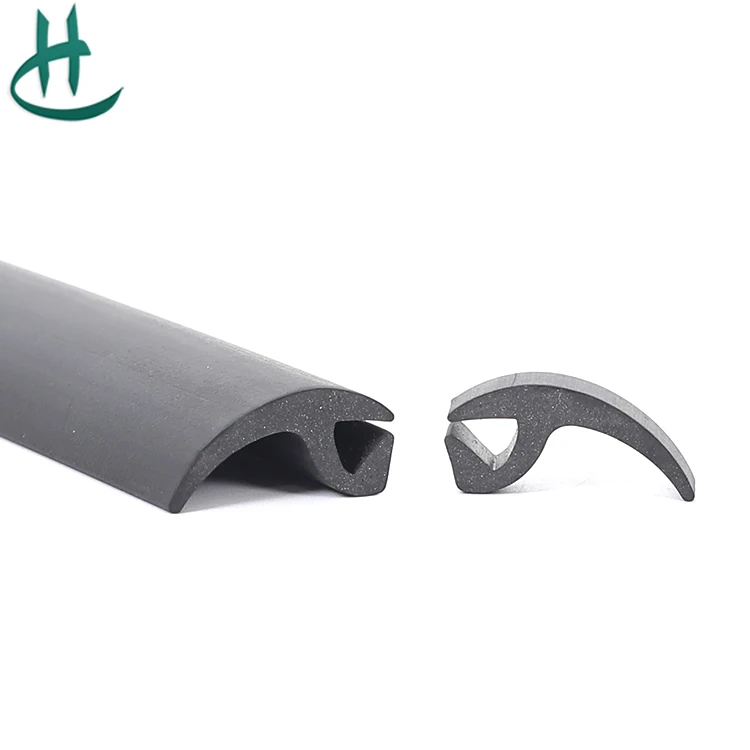
Customized Solutions for Unique Requirements
One of the hallmarks of leading window seal strip adhesive companies is their ability to provide tailored solutions. Modern architectural and industrial designs often necessitate seal profiles that are not available off-the-shelf. Customization capabilities include:
- Profile Design: Engineering custom cross-sections to perfectly fit unique window frames or glazing channels, optimizing compression and sealing performance. This might involve multi-cavity designs or co-extruded profiles with varying hardnesses.
- Material Formulation: Developing specific rubber compounds to meet extreme conditions, such as enhanced chemical resistance for industrial applications, broader temperature ranges, or specific flame retardancy requirements.
- Adhesive Integration: Applying specialized pressure-sensitive adhesives (PSAs) with specific bond strengths, temperature ratings, or residue-free removal properties.
- Color Matching: Producing seals in custom colors to integrate seamlessly with aesthetic requirements of specific projects.
- Special Features: Incorporating features like pre-drilled holes, molded corners, or specific end treatments for easier and more secure installation.
This level of customization ensures optimal fit, performance, and aesthetic integration, adding significant value to complex projects.
Application Case Studies
Real-world examples demonstrate the tangible benefits derived from partnering with expert window seal strip adhesive companies:
-
Case Study 1: High-Performance Commercial Skyscraper (Metropolitan Area)
A prominent skyscraper project required glazing gaskets capable of extreme weather resistance, superior sound attenuation (due to urban noise), and a service life of over 20 years. A leading window seal strip adhesive manufacturer engineered a custom co-extruded EPDM gasket with varying durometer hardness in different sections of the profile. This design provided optimal compression for airtightness while maintaining flexibility for thermal expansion. The solution resulted in a 30% reduction in HVAC energy consumption compared to initial estimates and achieved an STC rating exceeding client expectations, contributing to LEED Platinum certification.
-
Case Study 2: Offshore Oil Rig Living Quarters (North Sea)
Windows in the living quarters of an offshore oil rig demanded seals with exceptional resistance to saltwater corrosion, high UV exposure, and extreme temperature fluctuations (-20°C to +40°C), while also being fire-retardant. A specialized silicone-based seal strip was developed, incorporating UV stabilizers and flame-retardant additives. Extensive third-party testing validated its performance against ASTM and DNV GL standards, ensuring the safety and comfort of personnel in a highly aggressive environment.
-
Case Study 3: Historic Building Renovation (European City)
For a renovation project on a protected historic building, the client required modern energy efficiency without altering the visual appearance of the original timber windows. A manufacturer provided ultra-slim, high-density EPDM glazing gaskets with a pre-applied acrylic adhesive, custom-colored to blend seamlessly with the aged timber. The discreet seal significantly improved thermal performance and reduced drafts, achieving an R-value increase of 25% while preserving the architectural integrity of the facade.

Frequently Asked Questions (FAQ)
- Q1: What is the typical service life of your window seal strips?
- A1: Our high-quality EPDM and Silicone window seal strips are engineered for long-term durability, typically offering a service life of 10 to 20 years, depending on the specific material, application, and environmental conditions. Our materials undergo rigorous UV and ozone resistance testing to ensure longevity.
- Q2: Are your products compliant with international environmental standards?
- A2: Yes, our manufacturing processes and materials adhere to strict international environmental regulations. Many of our window seal strip adhesive products are RoHS and REACH compliant, and we are committed to sustainable practices.
- Q3: Can you produce custom profiles for unique window designs?
- A3: Absolutely. We specialize in custom extrusion and molding. Our engineering team works closely with clients using CAD/CAM tools to design and manufacture seal profiles that precisely match unique window geometries and performance specifications.
- Q4: What is the minimum order quantity (MOQ) for custom orders?
- A4: MOQ for custom orders can vary depending on the complexity of the profile and material. Please contact our sales team with your specific requirements, and we will provide a detailed quote and MOQ information.
Lead Time, Warranty, and Customer Support
We understand that reliable logistics and robust support are crucial for B2B clients. Our commitment extends beyond product quality to ensure a seamless experience.
- Lead Time & Fulfillment: Standard lead times for common profiles are typically 2-4 weeks, while custom orders may range from 6-10 weeks, depending on tooling requirements and material availability. We maintain strategic inventory levels and employ efficient production scheduling to meet committed delivery dates. Our global shipping network, facilitated by experienced window seal strip adhesive exporters, ensures timely and secure delivery worldwide.
- Warranty Commitments: Our window seal strips are backed by a comprehensive warranty against manufacturing defects and material failures under normal use. The specific warranty period varies by product type and material, typically ranging from 5 to 10 years. Detailed warranty terms are provided with each order or upon request.
- Customer Support: Our dedicated technical sales and support teams are available to assist with product selection, technical specifications, installation guidance, and troubleshooting. We offer pre-sales consultation, post-sales support, and can arrange on-site technical visits for complex projects as needed. For window seal strip adhesive quotes or technical inquiries, please contact us directly.
Conclusion
The selection of high-quality window seal strip adhesives is a critical decision for any construction or industrial project focusing on long-term performance, energy efficiency, and occupant comfort. Partnering with a knowledgeable and experienced window seal strip adhesive company that prioritizes material science, precision manufacturing, and robust quality control is paramount. By understanding the detailed manufacturing processes, technical specifications, and the full scope of advantages, B2B decision-makers can make informed choices that yield durable, high-performance sealing solutions, thereby enhancing the overall value and sustainability of their investments.
References
- ISO 9001:2015 - Quality management systems — Requirements. International Organization for Standardization.
- ASTM D2000 - Standard Classification System for Rubber Products in Automotive Applications. ASTM International.
- Reich, M. (2018). Elastomer Technology Handbook: Elastomers, Rubbers, Vulcanization, Rubber Compounds, Testing, Processing, Products and Applications. Carl Hanser Verlag GmbH & Co. KG.
- European Committee for Standardization. (2019). EN 15821: Building hardware. Hardware for windows and door-height windows. Requirements and test methods.
- Energy Star. (2023). Windows, Doors, and Skylights: Savings. U.S. Environmental Protection Agency.
-
Comprehensive Guide to White PVC Material: Benefits, Applications & Innovations
NewsNov.24,2025
-
Flat Hard Plastic PP Flexible Strips: Durable, Flexible, and Sustainable Solutions for Modern Industry
NewsNov.24,2025
-
Understanding Soft PVC Slip Cover Tuck Grip – Global Uses & Benefits
NewsNov.23,2025
-
Discover the Practical Benefits and Global Use of Square Plastic Tubes
NewsNov.23,2025
-
Understanding Led Lampshade Diffuser PC Covers – Benefits, Trends & Buying Guide
NewsNov.22,2025
-
Durable, Cost-Effective PVC Rectangular Grey Tube for Frame Solutions | Pulongte
NewsNov.22,2025
